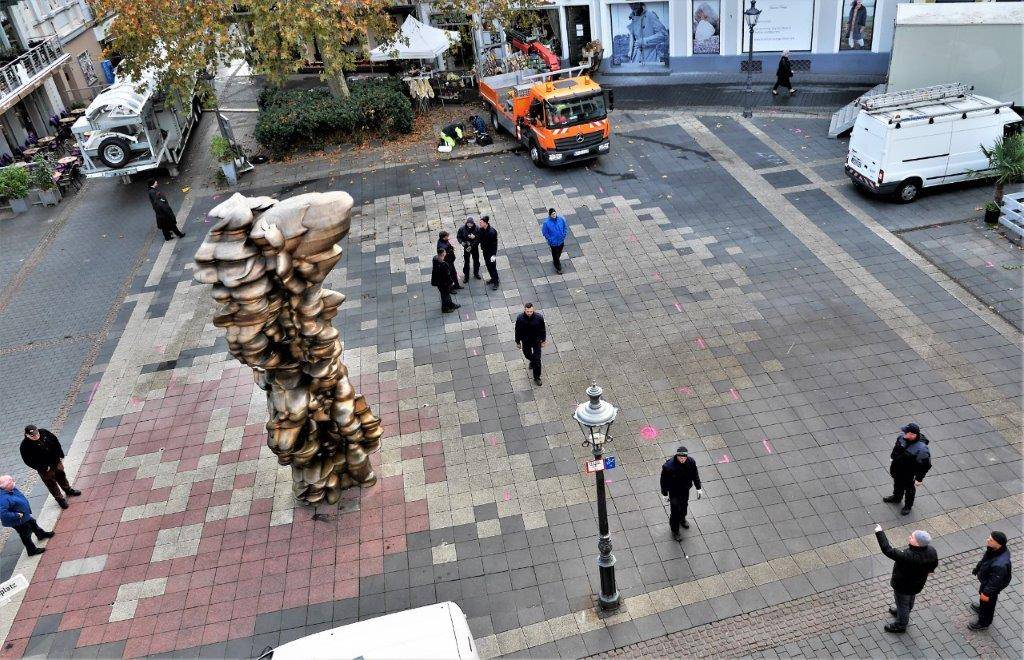Bonn-based developer Christoph Kronhagel invents new „fumes vacuum cleaner“ New process to remove nitrogen dioxide from air
Bonn · Bonn-based Christoph Kronhagel has developed a new process to remove nitrogen dioxide from the air. In this process, the exhaust gases are sucked in and filtered through slots in the roadway.
Is this the new "vacuum cleaner" that removes nitrogen dioxide and fine dust from traffic arteries such as Reuterstrasse or Belderberg and saves the city from driving bans? Christoph Kronhagel is convinced of this. The company of the architect and graduate engineer has developed a filter system that extracts polluted air from the road surface and releases it back into the environment when cleaned. However, the man from Bonn has not yet been able to convince those responsible in the Stadthaus of his invention.
The situation is different in Reutlingen and Kiel, where the administrations are giving concrete consideration to the introduction of the system on particularly polluted road sections. The result is first of all a construction site, because: On a section of the road, precast concrete elements with narrow suction slots are inserted into the asphalt at a depth of around 70 centimetres. This contains filter cassettes that absorb the fine dust and in which nitrogen dioxide is also bound via activated carbon. The residues are regularly disposed of from collecting basins, and the filtered air is returned to the open air via columns next to the road. 25,000 to 30,000 cubic metres of air per hour can be filtered in this way.
"The decisive point is that nitrogen dioxide initially collects in high concentrations just above the road surface. That's where we catch it before it swirls upwards," says Kronhagel, founder and managing director of air2public. He is convinced that Bonn could avert driving bans with his product. The first reactions of the city administration obviously ranged between friendly-interested and non-binding. "When talking to local authorities, I often hear that it's the causes that have to be tackled, not the symptoms, which is true," says Kronhagel, but adds: "When a patient comes to the doctor with acute heart problems, a healthier lifestyle does not help him alone. Nevertheless, he can understand the caution of the administrations: "After all," says the 60-year-old, "they manage the citizens' money.“ Apropos: In Reutlingen, 700,000 Euro have been calculated to facilitate this.
The financing concept provides for the city to finance the canal. "Air2public" maintains the filter stations, the operating costs of which are to be largely refinanced by advertising, which can be seen on the above-ground pillars. Kronhagel sees a good chance for Bonn as a model city in the Clean Air Immediate Programme to have the investment costs covered by the subsidies and thus by the citizens in a cost-neutral way. The engineer expects additional synergy effects in view of cooperation with the construction company Strabag: "This has developed a type of asphalt that converts nitrogen dioxide into nitrate.
After the Technical University of Stuttgart has apparently successfully tested the system and confirmed a reduction of nitrogen dioxide by 80 to 90 percent, Reutlingen and Kiel want to try it out. At the latest when the filters run there, it will be possible to conclusively evaluate the concept.
(Original text: Rüdiger Franz; Translation: Mareike Graepel)




